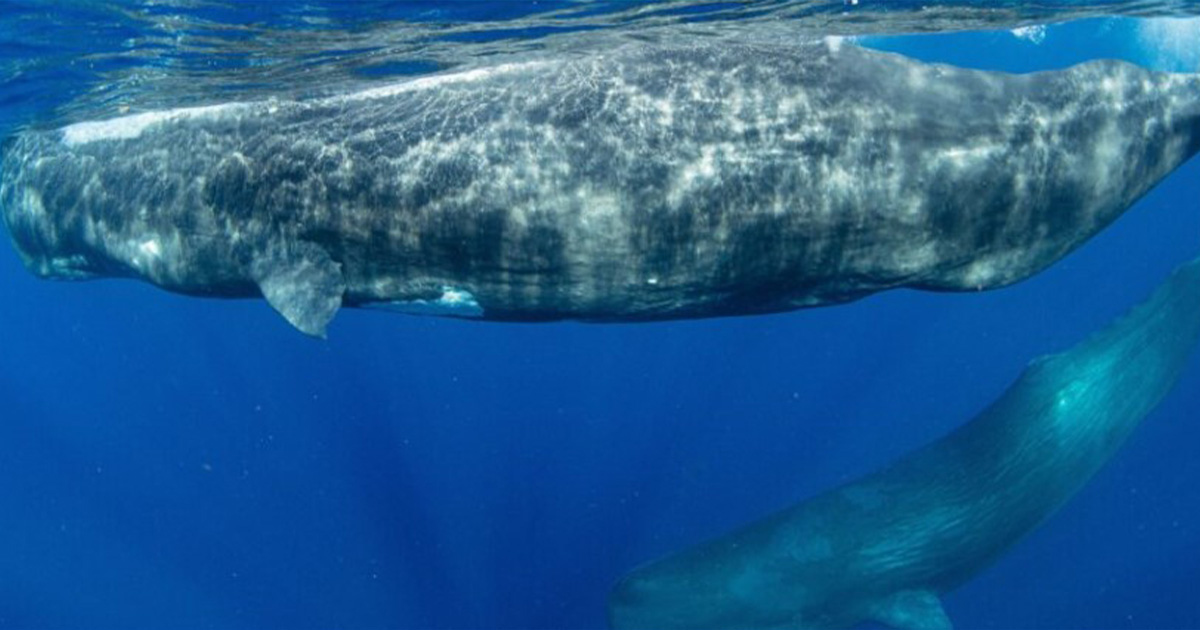As Government of the Commonwealth of Dominica continues with its thrust to build the first climate resilient country in the world with a holistic approach targeting all sectors of the economy; Government, in collaboration with National Geographic—Pristine Seas has announced the establishment of a Sperm Whale Reserve.
This announcement comes as Government is putting the necessary initiatives and programs in place to maximize the earnings of the blue economy.
The announcement came at a press conference held on Monday, November 13 at the State House Conference Center.
The Sperm Whale Reserve will be on the west coast of Dominica. It will expand over approximately seven hundred and eight-eight square kilometers and will run from the north to south of Dominica.
CEO of CREAD, Her Excellency Francine Baron says this reserve forms part of a resilient framework developed by Government as part of the goal to build a climate resilient nation.
“We have developed a resilient framework that includes not only ensuring the resilience of our institutional system, physical structures, and economy, but also importantly speaks to the resilience of our eco-system such as increasing our healthy coral reef coverage, expansion of our protected forest areas and sustainable agricultural practices. While we have sought to make ourselves more resilient and improve the lives of our people, we are also cognizant of our responsibility to protect the habitat and lives of the animals that inhabit both our land and marine space,” she stated.
Ambassador Baron says Government is pleased to partner with National Geographic to further strengthen the protection of the sperm whale’s population.
“We are very fortunate to have over fifty families of sperm whales who choose Dominica’s waters as their home. We have lived in harmony with the whales for several decades and consider them as part of us and they have also formed an important component of our tourism product. In our thrust to approach resilience in a holistic manner, we recognize the need to also ensure the resilience of our marine eco-systems and in particular to ensure the protection of the majestic sperm whales. We have been pleased to partner with National Geographic – Pristine Seas, Dynamic Planet, and the Dominica Sperm Whale Project in examining ways in which we can strengthen the protection of our whales,” Ambassador Baron noted.
Founder of National Geographic Explorer in Residence and Pristine Seas Dr. Enric Sala says he was impressed with the resilience plan of the Government of Dominica to safeguard the eco system.
“We were very impressed with Dominica’s plan and strategy for climate resilience, and its aim to be the first climate resilient nation in the world. We know that the sperm whales are part of the climate resilience machine of Dominica, because they help to sequester carbon in the deep ocean. So, there is a need to restore the population because the whales there are, the more carbon sequestration they can help which contributes to the climate resilience of Dominica. Also this is one of the few places in the world where you can see and swim with sperm whales reliably throughout most of the year, so Dominica also has an opportunity to develop a world class operation that with a lower volume of people, brings revenue that will help offset the cause so that eventually the reserve will pay for itself, the whales can pay for themselves,” Dr. Sala explained.
Meanwhile, Minister for Agriculture, Fisheries, Blue and Green Economy, Hon. Roland Royer says this Sperm Whale Reserve falls in line with Government’s development agenda.
“As such, a critical component of our National Economic Development Agenda includes the holistic development of the sustainable ocean-based economy, what we refer to as the blue economy. By promoting the sustainable use of our marine resources, particularly its unique eco system and rich biodiversity, we will position Dominica as a country known for adopting healthy lifestyles in harmony with nature; promoting sustainable consumption and production patterns and building resilience that reduces disaster risks and adapts to or mitigate climate change impacts. In the 2023/2024 annual budget address, Government gave a firm commitment to establish the blue economy and to introduce appropriate legislation to govern national frameworks for the regenerative development of our marine resources,” Minister Royer stated.
He noted that this Sperm Whale Reserve was first announced in the 2023/2024 annual budget address as part of Government’s plan to develop the blue economy.
“And I quote from the address ‘establishment of the first sperm whale reserve for sperm whale protection and a well- managed sustainable operation with a low carbon footprint and high economic benefits in whale watching, water sports such as diving and recreational fishing, marine research and education, marine and coastal resources conservation, mariculture, photography, and film,” the Blue Economy Minister noted.
The Minister then declared Government’s firm commitment to the establishment of the first Sperm Whale Reserve in the world.
“It is within this context that I present on behalf of the Government and people of the Commonwealth of Dominica this declaration of our firm commitment to the establishment of a sanctuary for the protection of our resident sperm whale population in Dominica, the Dominica Sperm Whale Reserve; the first in the world. The Dominica Sperm Whale Reserve shall become the first marine protected area designed specifically to preserve the sperm whale’s marine habitat, critical for them to thrive in this pristine environment along the west coast of Dominica. By creating a safe haven for our sperm whale families, we are not only helping them and the ocean, we are contributing directly to improving and sustaining life below water, protecting our local economy and the benefits that extend to our local fishers, tour operators and the people around the world while building resilience to the impacts of climate change,” Minister Royer added.





